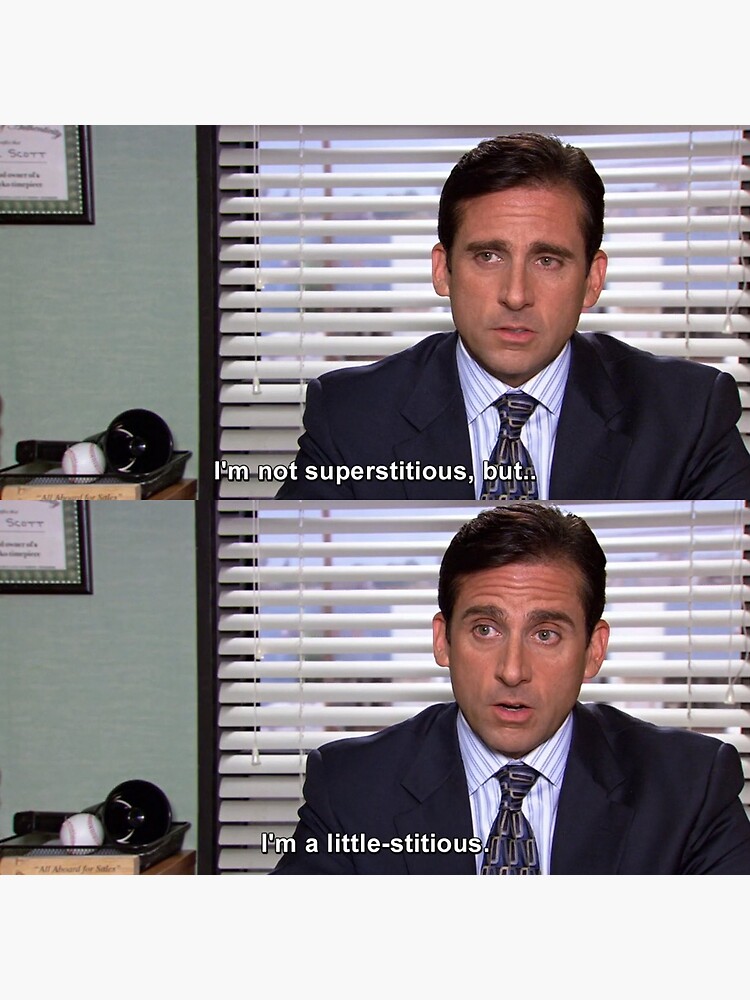Stitious

In a world that thrives on logic and reason, superstitions persist like stubborn shadows, clinging to the fabric of human belief across cultures and generations. From avoiding black cats to the ritual of knocking on wood for luck, superstitions are deeply ingrained in society, often defying rational explanation. But what drives these peculiar beliefs, and why do they persist in an age of scientific enlightenment?
Superstitions, by definition, are irrational beliefs that certain actions or objects possess magical or supernatural powers to influence events. They can be as innocuous as carrying a lucky charm or as elaborate as performing complex rituals before significant events. Despite their illogical nature, superstitions hold sway over people’s minds, influencing their decisions and behaviors in subtle yet profound ways.
The origins of superstitions are as diverse as the cultures that harbor them. Many superstitions can be traced back to ancient folklore, religious practices, or historical events. For example, the belief in the evil eye, prevalent in various cultures worldwide, dates back thousands of years and is rooted in the fear of malevolent stares causing misfortune. Similarly, the superstition surrounding Friday the 13th has its roots in Christian tradition, with the day being associated with the Last Supper and the crucifixion of Jesus Christ.
Superstitions
Psychologists and anthropologists suggest several reasons why superstitions endure. One explanation is the human tendency to seek patterns and meaning in the world, even where none exist. Superstitions offer a sense of control and predictability in an otherwise chaotic universe, providing comfort and reassurance in the face of uncertainty. Moreover, superstitions often arise in situations where people lack control over their circumstances, such as during times of illness, danger, or impending change.
Cultural transmission also plays a significant role in the perpetuation of superstitions. Children learn superstitions from their families, peers, and society, inheriting a rich tapestry of beliefs passed down through generations. In this way, superstitions become embedded in the cultural fabric, perpetuated through storytelling, rituals, and communal practices.
Engaging
The power of superstitions lies not in their objective truth but in the subjective experiences of those who hold them. Studies have shown that belief in superstitions can actually influence behavior and performance through psychological mechanisms such as self-efficacy and placebo effects. For instance, athletes may perform better when wearing their lucky socks or engaging in pre-game rituals, not because of any inherent magical properties but because of the psychological confidence these rituals instill.
However, superstitions can also have negative consequences when taken to extremes. Belief in superstitions can lead to irrational decision-making, reinforce harmful stereotypes, and foster a climate of fear and prejudice. Moreover, superstitions rooted in ignorance or misinformation can impede scientific progress and rational inquiry, hindering our understanding of the natural world.
Conclusion
In a rapidly changing world where science and technology continue to unravel the mysteries of the universe, superstitions persist as curious relics of our collective past. While some may dismiss them as irrational folly, others find solace and meaning in these age-old beliefs. Whether as a source of comfort, cultural identity, or simply a quirk of human nature, superstitions continue to fascinate and intrigue, reminding us of the enduring power of belief in shaping our perceptions of reality.
